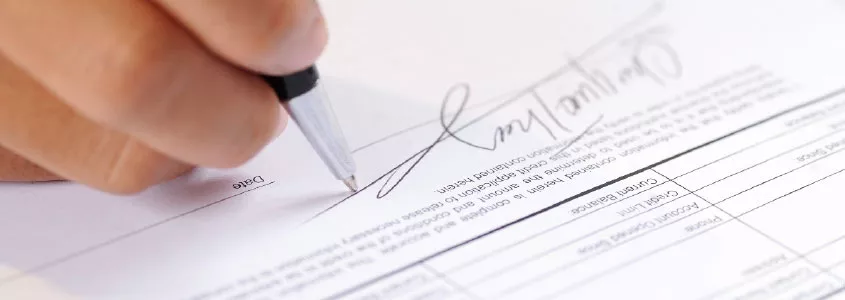
Table of contents
There are numerous cases that come to our office in which our clients are surprised to receive an inheritance with debts from a family member.
Our team of inheritance lawyers in Madrid are experts in dealing with this type of case and avoid you having to pay with your own assets a debt that does not correspond to you, because you made the mistake of accepting an inheritance that you thought was free of debts.
In this post, we help you to clarify some questions so that you can safely take the first steps, at the moment of having the certainty of being the heir of a family inheritance.
What is the first thing to do when you receive an inheritance from a relative?
When you are aware of the death of a close relative and you believe that the will may state that you are the beneficiary of their possessions, the first thing to do is to request the death certificate from the Civil Registry, where the legal inscription of the death appears.
Next, you will have to request the Certificate of Last Will and Testament of the deceased from the Ministry of Justice, where you can verify the existence or not of a will. If so, the next step is to go to the notary's office to request an authorised copy.
After fifteen working days from the date of notification of the death, you will have to request the Certificate of Insurance with death cover, which accredits the deceased as insured.
In the event that there is no will, you will have to request the declaration of heirs from the notary or the Court of First Instance, in the domicile that the deceased last occupied and where he had most of his patrimonial assets.
Can I choose whether or not to accept an inheritance?
If a deceased person has left you as heir to all his or her assets, you are not obliged to accept the inheritance if you do not want to.
If you have been the beneficiary of an inheritance and you do not want to accept it because you know the debit status of the inventory, you can choose to accept or reject the inheritance, regardless of the last will and testament.
However, special care should be taken not to accept inheritances without knowing the full estate of the deceased, in case we are unable to take care of the maintenance or do not want to own such property.

Can debts be inherited and what happens if I do not accept an inheritance?
According to the Civil Code, the concept of inheritance includes all the active and passive assets that a person possesses, until their death. Therefore, if you decide to accept an inheritance, it may bring with it a debt that you have to take care of with your own assets.
To avoid having to take responsibility for a debt that does not correspond to you, you have to know the deceased person's assets perfectly to avoid getting a surprise, therefore, it is advisable to seek the help of a family lawyer, to help you to know the total capital, and decide whether or not it is worthwhile to accept the inheritance.
If you do not accept the inheritance, nothing will happen. Even if the debts belonged to a first-degree relative, you will not be responsible for them if you refuse to accept the inheritance.
The debts of a deceased person without confirmation of heirs would take thirty years to be extinguished, so they are not successive.
How do you know if an inheritance has debts?
If you have doubts about the possibility of the deceased person's indebtedness, the best thing to do is to reject the inheritance to prevent it from being detrimental to you.
There are many ways to find out if a person is so indebted that they are in debt that it is impossible to pay off their assets.
We always recommend hiring the services of a lawyer who is an expert in Family Law. A good legal professional will always be able to accompany you through the legal process of processing an inheritance and find out if it is really in your best interest or if it is better to reject it.
How to inherit without being ruined?
the estate, you are afraid of finding some kind of debt, you always have the option of accepting the inheritance with the benefit of an inventory.
This right, set out in article 1010 of the Civil Code, allows you to accept the inheritance without affecting the heir's personal assets if the deceased's debts exceed the value of his or her assets.
Accepting the inheritance with the benefit of an inventory should be requested if you are not sure or are unaware of the possibility of the existence of debts, so that, from this point onwards, we can know the estate, and only the assets will be received once the costs of the existing debts have been met.
There is another option, in which you can decide whether or not to accept the debt, knowing in advance the benefit of the inheritance to be settled. This right is called the right to deliberate.
Do not forget that for any question related to Family Law and in particular if you need a Lawyer expert in Inheritance, you should contact our Law Firm.

"Anywhere in Spain"
With our online appointment system you will have immediate advice without the need for face-to-face visits or travel.
One of our lawyers specialized in your area of interest will contact you to formalize an appointment and make your consultation by video call.

Add new comment